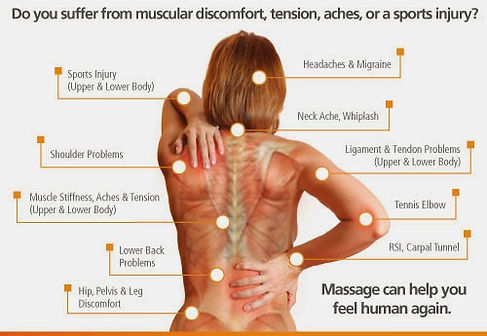
Remedial Massage
How is a Remedial Massage Different?
Instead of the “one size fits all” solution of regular massages, remedial massage practitioners tailor a treatment to your specific needs.
When you go in for a remedial massage, the therapist will assess your body and where your pain or discomfort originates. From there, they’ll give you an individualised treatment geared toward healing you.
All massages promote relaxation, but remedial massage is also considered a medical practice. This form of massage therapy addresses the source of physical pain or discomfort and creates a solution unique to your needs.



If you have particular muscle tension or chronic pain a remedial massage may be for you. Your remedial massage therapist will assess where you need treatment and what may be causing your pain. They’ll perform some tests to see exactly which muscles are giving you trouble and will tailor a treatment plan to suit. The treatment itself may involve deep tissue work for short periods of time, but the results are definitely worth it!
Conditions such as sciatica, carpal tunnel, stiff necks, headaches, sports injuries and many more complaints can be eased with a remedial treatment.
If you’d like more advice regarding what’s best for you, please call us to discuss your condition. Or, simply book your appointment and enjoy the benefits. Private health fund rebates are also available.
The health benefits of remedial massage
Remedial massage can stimulate the blood supply, make joints more mobile, and help to repair damaged tissues. The therapist will aim to balance the length, tone and tension of muscles and tendons, which restores the correct position of the bones, increases blood flow and helps heal injuries.
Easing and stabilising the muscles can improve problems such as headaches, abdominal pain, low back pain and sciatic pain.
Some health problems that are often treated with remedial massage include
- Sporting and dance injuries
- Muscle cramps, Whiplash, Muscular atrophy, Fibrositis, Spondylitis, Arthritis
- Frozen shoulder.
-
Decreasing pain and alleviating chronic pain conditions.
-
Prevention and management of sports and soft tissue injuries.
-
Releasing tension and tightness in the muscles.
-
Increase blood flow and oxygen to treatment area.
-
Faster recovery time for athletes or people who train rigorously.
-
Flushing chemicals out the body that cause muscles to tighten.
-
Breaking down and healing of scar tissue post-surgical operation.
-
Assisting the flow or draining of lymph fluid in patients with cancer and/or lymphedema, which can decrease swelling in the treatment area.
-
Can improve problems such as headaches, abdominal pain, low back pain and sciatic pain.
-
Can be used in treatment for muscle cramps, whiplash, muscular atrophy, fibrositis, spondylitis, and arthritis.


